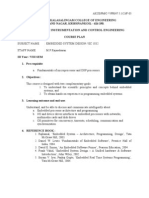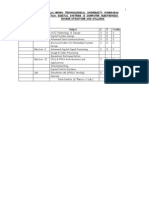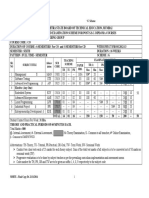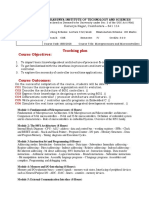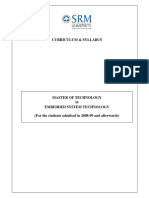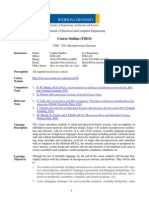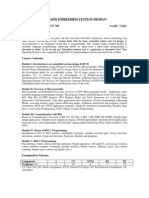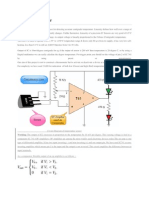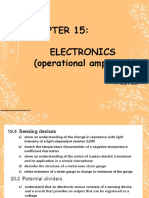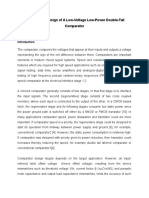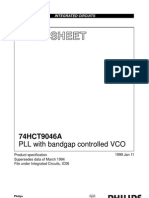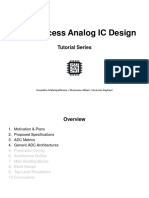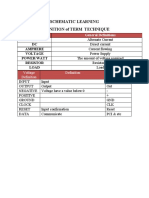0% found this document useful (0 votes)
169 views6 pagesAnalog and Digital Design
The document describes the course syllabus for the CDAD course. It covers topics like C programming, data structures, digital design, electronics, data communication and networking, and an aptitude test. The course will focus on constants, variables, operators, control flow, functions, arrays, pointers, structures, input/output in C, preprocessor directives, bitwise operators, Boolean algebra, logic gates, decoders, timers, microprocessors, assembly language, memory interfacing, data communication basics, networking protocols, quantitative aptitude and written communication skills. It will include a one month project and seminar.
Uploaded by
Tapas SatpathyCopyright
© Attribution Non-Commercial (BY-NC)
We take content rights seriously. If you suspect this is your content, claim it here.
Available Formats
Download as DOCX, PDF, TXT or read online on Scribd
0% found this document useful (0 votes)
169 views6 pagesAnalog and Digital Design
The document describes the course syllabus for the CDAD course. It covers topics like C programming, data structures, digital design, electronics, data communication and networking, and an aptitude test. The course will focus on constants, variables, operators, control flow, functions, arrays, pointers, structures, input/output in C, preprocessor directives, bitwise operators, Boolean algebra, logic gates, decoders, timers, microprocessors, assembly language, memory interfacing, data communication basics, networking protocols, quantitative aptitude and written communication skills. It will include a one month project and seminar.
Uploaded by
Tapas SatpathyCopyright
© Attribution Non-Commercial (BY-NC)
We take content rights seriously. If you suspect this is your content, claim it here.
Available Formats
Download as DOCX, PDF, TXT or read online on Scribd
/ 6










